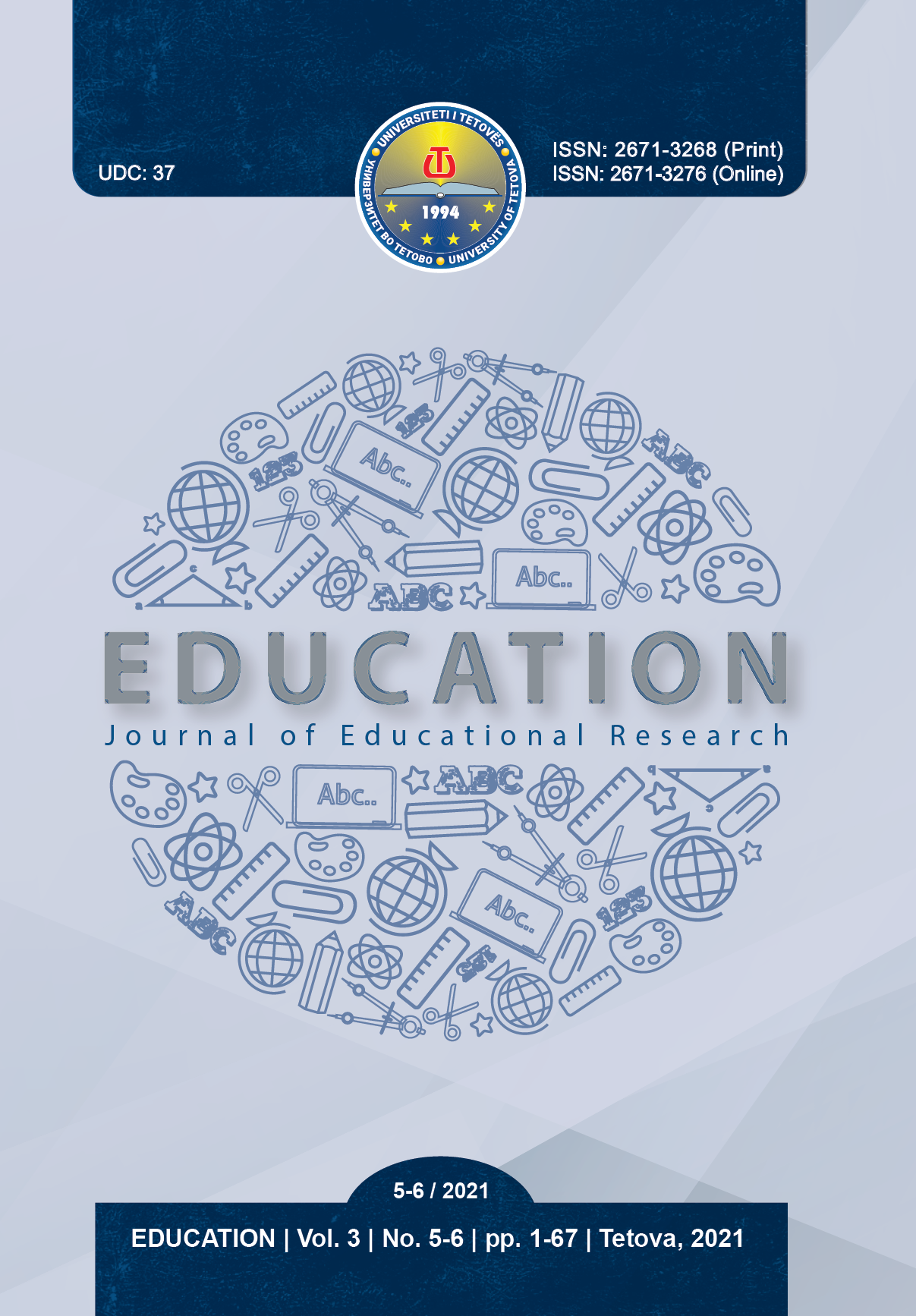ASSESSMENT OF STUDENT ACHIEVEMENTS DURING THE COVID PANDEMIC
ASSESSMENT OF STUDENT ACHIEVEMENTS DURING THE COVID PANDEMIC
Author(s): Arberesha Zenki-Dalipi, Besa Dogani, Makfirete AmetiSubject(s): Education
Published by: University of Tetova
Keywords: achievement assessment; distance learning; online assessment
Summary/Abstract: To prevent the spread of COVID-19, the Republic of North Macedonia, like most countries globally, decided to close educational institutions of all levels temporarily. In addition to training teachers to use a unified platform, the BDE drafted a Guide for teachers on how to assess students. The attempt to manage the new reality brought to the world by the shock de facto modified the approach to assessing achievements. This finding will gain meaning during the elaboration and analysis of data collected from teachers' attitudes in the following paper. The research elaborates on implementing practices referred to by the guide, respectively oriented to disclose the teachers' experience. The research in question will be guided by the attitudes of 101 teachers collected from the online questionnaire designed to answer questions that clarify the method of assessment, the willingness of teachers to create different assessment instruments and their competencies for implementation of the same in real-time, eventual difficulties during the realization of knowledge control, teachers' attitude about the objectivity and measurability of online assessments, as well as the application of formative assessment during the creation of the summative grade. The results from the research reflect the situation where all teachers have conducted the assessment, from which there is evidence of the application of synchronous and asynchronous assessment. While about 90% of teachers state that they did not find help in the guide prepared by the BED, 78.2% deny the help from the MoE training. Statistically significant data result in the question of the reliability of the tests, the value of which elaborated with H2 with test significance 0.058, less than the 0.05 limit. According to Pearson's correlation which represents a significant correlation with (0.036 <0.05), we find that teachers plan to conduct assessments online. Statistically processed data on the probability of the impact of students' prior knowledge on the creation of the summative grade show results that reflect the significant relationship 0.004 and test value 0.006 (<0.05).
Journal: EDUCATION – Journal of Educational Research
- Issue Year: 3/2021
- Issue No: 5-6
- Page Range: 9-18
- Page Count: 10
- Language: English

